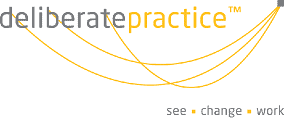The Interim Report from the Royal Commission into Misconduct in the Banking, Superannuation and Financial Services Industry has labelled the banking sector as being driven by greed and dishonesty. Short term profit was pursued at the expense of honesty.
One key observation was made – that all the conduct identified and criticised in the report was conduct that provided a financial benefit to individuals and entities. For individuals, the conduct resulted in being paid more. For entities, the conduct resulted in greater profit (page 340).
The focus of many organisations will turn quickly to “What can be done to prevent this conduct happening again?” The AICD has “called on Directors across all sectors to reflect on their governance practices and ask “Are we serving our customers and stakeholders honestly and fairly? Are we acting lawfully and ethically?” (Member Alert, 28 September 2018).
Ahead of Banking CEOs appearing before the commission in November, they are making dramatic reforms. Westpac are holding three hour briefings with all staff and addressing the issue of how quickly “bad news” travels to the top. APRA’s prudential enquiry into the CBA found that while news did travel to the executives, there was widespread complacency in dealing with issues.
So if you are an HR professional outside the financial services sector, what should your response be? What can you learn from the royal commission? What are you asking yourselves about your “equivalent” conduct risk issues that could have significant adverse consequences on customers and/or stakeholders (and as a secondary issue, be front page news)? Consider some of the high profile non-finance sector conduct issues in recent times:
- Underpayment of staff on work visas (Dominos)
- Deliberate programing of diesel engines to defeat emissions testing (VW)
- CEO on 41 charges of misconduct and whole Council removed (Central Goldfields Shire Council)
- $16m payments fraud by government employee (Queensland Health)
As a matter of good practice, HR functions should be asking themselves how well HR practices mitigate conduct (people) risk?
- How well do you know the desired culture of your organisation? What conversations have your Board been having in relation to culture? Do you understand what their expectations are?
- What criteria are staff selected to join your organisation? Do these match the desired culture?
- How are new starters inducted in to the culture? Do they know what standards of behaviour are expected? Do new staff know how to raise an issue (complaint or otherwise)?
- How are staff given a voice? How are any insights or feedback from customer facing staff dealt with? How does “bad news” make its way to the top? How “safe” is it for your staff to raise issues?
- What conversations are you involved in and/or leading about culture and behaviour across the business? How are you supporting the Board and Executive team in leading and shaping culture?
- How readily accessible are your HR polices? Are they up to date? How do you communicate policies to your staff? Have you considered the tone of your policies? Is it aligned to your desired culture?
- Have you recently reviewed your remuneration practices? Do you have sales and incentive based reward schemes? (The royal commission’s interim report found remuneration incentives were at the heart of every scandal it uncovered). Are the rules in these schemes robust and do they consider conflicts of interest (real or perceived) and include hurdles for behaviour and customer satisfaction?
- Have you analysed customer feedback with HR metrics? Are there any leading analytics that may result in adverse customer satisfaction? Highlight how culture impacts business outcomes and let the data speak for itself (Kate Evans, Group Executive People & Culture, Shape demonstrated this so well at the recent Human Synergistics Conference).
Taking time to understand where your organisation’s major people risks are and how you are mitigating them is good business practice. Going deeper, adopting a “black hat” may help uncover something that you had previously not considered. Asking some insightful questions and having someone look into some data may assist in identifying and preventing a significant issue from occurring. Consider an independent review of your HR practices and how they mitigate people risk.
Bruce McCowan is Director of Leadership and Consulting at deliberatepractice and supports organisations to achieve business outcomes through their people. With experience as an HR Director in a range of industry sectors, Bruce provides unique insights into business and HR strategy to improve organisational performance. He conducts diagnostics of HR practices and processes to ensure they mitigate people risk.



